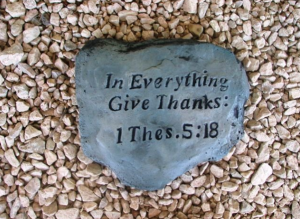Are you suffering from depression? Is someone you love suffering with depression? Suffering is the operable term here, because depression is  truly painful. People with both chronic physical pain and clinical depression have told me that they would rather have the physical pain than the depression. The pain of clinical depression is hard to describe, but you’ll know it if you get it.
truly painful. People with both chronic physical pain and clinical depression have told me that they would rather have the physical pain than the depression. The pain of clinical depression is hard to describe, but you’ll know it if you get it.
The most effective treatment for depression is a combination of medication and cognitive psychotherapy, but sometimes those treatments are unavailable or may not be working well enough for you. Whether or not you are getting professional treatment, there are several do-it-yourself actions you can take to fight your depression.
Sometimes it helps to have a different way of perceiving depression. Think of your depression as a parasitic, mean, ugly troll that has gotten into your body and mind. This troll wants to grow, and it doesn’t care what it does to you. It is truly a parasite. The depression troll grows by making you do the very things that will feed it. It makes you yearn to do the things that make it grow and become stronger. By resisting these tendencies, you can weaken your depression and starve that mean, ugly, parasitic troll and make him go away.
There are four areas where the depression troll influences your behavior. To fight the depression and starve the troll, you have to do the opposite of what he makes you want to do. In order to give each area proper attention, we’re going to consider the four depression fighters in four consecutive blog posts. This is the depression fighter for today:
DEPRESSION FIGHTER NUMBER ONE:
INCREASE PHYSICAL ACTIVITY
Your depression troll makes you decrease your physical activity. You feel tired all the time. You don’t feel like doing anything. You don’t want to move. You feel heavy and drained of energy. The troll makes you feel this way because it feeds the depression, making it grow. The less you move, the more depressed you become. In contrast, the more you move, the less depressed you become.
Any activity or movement helps. Even getting up from the couch and walking around the house helps some. Any activity that makes your muscles move and speeds up your heart and breathing fights depression. Walking is a very effective depression fighter. A 20-30 minute walk every day would be great, but any amount helps. It seems to help the nervous system’s balance the neurotransmitters (the chemical foundation of depression).
I do realize that getting up off the couch or out of bed can feel like a monumental endeavor. It can feel totally impossible if your depression is severe. You may have to begin with very small increases in physical activity. Take a shower and get dressed. Walk from one room to the next. Step outside for a little while. Try to push yourself, but don’t chastise yourself if you can’t. Just try again later. Keep trying. Persistence is often the key to defeating depression.
You might also recruit a family member or friend to help you increase your physical activity. Tell them to push you, without fussing at you. This can be a fine line, so they will have to be careful, but the benefits of a supportive friend can be enormous.
Next week, we’ll look at the second step in your do-it-yourself guide to fighting depression, but for now try to increase your physical activity as much as you can each day.
Question: Share some actions that have helped you or a loved one fight depression.



